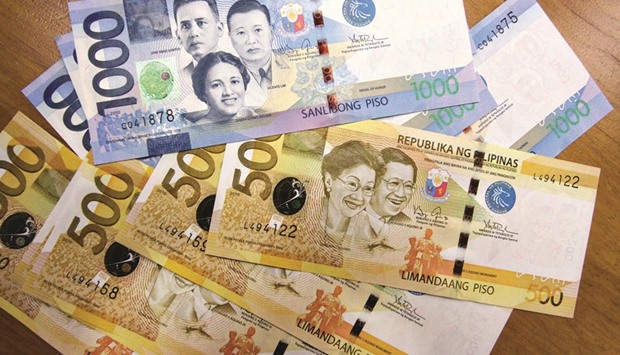Political risk, a narrowing current-account surplus and greater central bank tolerance for currency weakness will weigh on the Philippine peso this year, according to HSBC Holdings.
Europe’s biggest lender forecasts the currency, the best- performing in Southeast Asia in the three years through 2015, will drop 2% to 48.5 a dollar by year-end, Alastair Pinder, an Asian foreign-exchange strategist in Hong Kong, wrote in a research note last week.
Investors should look for opportunities to short the peso before risk events like May’s presidential elections, he wrote.
President Benigno Aquino, who is prohibited from a second six-year term, shrank the budget deficit, made progress in tackling corruption and has presided over average annual growth of 6.6% since 2012, the fastest since the 1970s.
There is no clear front-runner in the race to succeed him and the winner will have to contend with a slowdown in global growth that’s hurting remittances, which make up 10% of the economy.
“While the outcome of the election is looking uncertain, one thing is for sure – Aquino’s replacement has big boots to fill,” wrote Pinder. “We suspect the peso will be sensitive to the result this time around.”
The Philippine currency has declined 0.7% this year to 47.53 a dollar as of the midday break in Manila, according to prices from the Bankers Association of the Philippines. One- month implied volatility, a gauge of expected swings used to price options, has risen 123 basis points in 2016 to 6.61% and reached the highest level since October 2014 in January.
Volatility more than doubled in the run-up to the last presidential election in 2010.
The Philippines’ current-account surplus shrunk to $5.6bn in the nine months through September from $6.8bn in the year-earlier period, according to central bank figures.
Remittances are forecast to have grown 0.1% in December from a year earlier, compared with 3.2% in November, according to a Bloomberg survey.
The narrower excess in the broadest measure of trade means the peso is more vulnerable to outflows and the central bank’s introduction of an interest-rate corridor system may make the authority more tolerant of depreciation, Pinder wrote.
While it’s not yet the right time to offload the peso, if implied yields were to decline HSBC would prefer to sell it against Indonesia’s rupiah and India’s rupee, he wrote.

Political risk, a narrowing current-account surplus and greater central bank tolerance for currency weakness will weigh on the Philippine peso this year, according to HSBC
